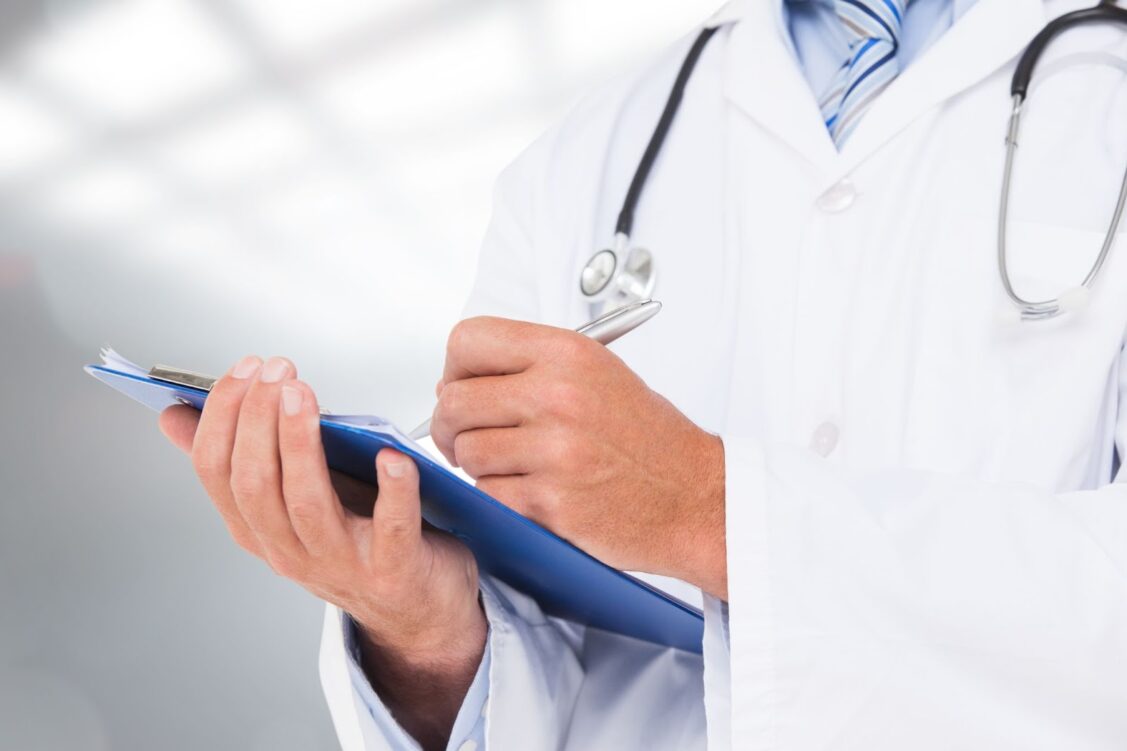Inside the Daily Journey of a Gastro Specialist
In the realm of medical knowledge, a sprawling landscape of specialties and subspecialties unfolds. Within this intricate tapestry lies the field of gastroenterology, a dedicated domain focused on comprehending and addressing ailments concerning the intricate digestive system. Yet, have you ever wondered what an ordinary day holds for a gastroenterologist? In this article, we embark on a journey to uncover the daily routine of these healthcare professionals, shedding light on their indispensable role in the world of healthcare.
Morning Routine: Starting the Day
The dawn breaks, and for gastroenterologists, it marks the beginning of a day filled with dedication and commitment to patients’ digestive health. Their day typically kicks off between 6-7 AM, a time when most of us are still in the embrace of slumber. However, the journey into their daily routine starts like many others – with a steaming cup of coffee that awakens both their senses and determination. But what sets them apart is their transition from the morning rituals that most share to a profound focus on their responsibilities.
Morning Rituals and Beyond:
- A cup of coffee: Gastroenterologists indulge in the same caffeine fix that jumpstarts millions of mornings worldwide, finding solace in its warm embrace;
- News and emails: A quick scan of the newspaper or a brief review of emails keeps them connected to the world before they immerse themselves in their professional realm;
- Schedule Mastery: Their attention swiftly shifts to their meticulously crafted schedule, where lives are scheduled in slots. They review patient appointments, surgical procedures, and consultations, ensuring they are fully prepared to tackle the day’s challenges.
Mental Preparation:
- Before donning their white coats, gastroenterologists engage in an essential mental warm-up. They mentally prepare themselves for the procedures, consultations, and diagnoses that await them. This mental fortitude is their unsung superpower, ensuring they bring their A-game to every patient encounter.
Consultations: The Heart of the Profession
Mid-mornings in the world of gastroenterology pulse with activity as patient consultations take center stage. Here’s an intricate look at what unfolds during this pivotal phase:
- Patient-Centric Approach: Before even meeting the patient, the gastroenterologist embarks on a thorough journey through medical histories. They delve into past records, scrutinize previous tests, and pore over referral notes, all in the pursuit of understanding the patient’s unique health narrative;
- Comprehensive Conversations: Face-to-face with the patient, the gastroenterologist becomes a compassionate detective, asking questions about symptoms, their duration, and their severity. They explore the patient’s dietary habits, lifestyle choices, and family medical history, building a comprehensive canvas of information;
- The Art of Diagnosis: Drawing from the insights gathered through the discussion, the gastroenterologist crafts an initial diagnosis. This preliminary understanding is the foundation upon which the patient’s path to wellness is built;
- Personalized Recommendations: Gastroenterologists recognize that every patient is unique, and thus, their recommendations are tailored to suit individual needs. These recommendations may encompass dietary adjustments, lifestyle changes, medications, or further investigations;
- Exploration Through Tests: In certain cases, where the complexity of the ailment demands it, the gastroenterologist may recommend diagnostic tests like endoscopies or colonoscopies. These tests are essential for peering into the intricacies of the digestive system, providing clarity on the way forward.
Tips for Patients:
- When attending a gastroenterology consultation, it’s helpful to prepare in advance. Bring a list of your symptoms, questions, and any relevant medical history;
- Be open and honest during the conversation, as even seemingly insignificant details can be crucial for an accurate diagnosis;
- Understand that the initial diagnosis is a starting point; further tests may be necessary to confirm and refine the treatment plan;
- If diagnostic procedures are recommended, discuss the process, risks, and benefits with your gastroenterologist to make an informed decision.
Procedures: Hands-on Care
Gastroenterologists are skilled practitioners who navigate the intricate landscape of the digestive system, and while not every day is brimming with procedures, there are designated times for these crucial aspects of their work. These hands-on care procedures are vital for diagnosing and treating various gastrointestinal conditions, ensuring the well-being of their patients.
Endoscopy: Peering into the Gastrointestinal Realm
Endoscopy is a remarkable procedure that opens a window into the upper part of the gastrointestinal tract, granting gastroenterologists an up-close look at the intricate network of organs and tissues.
- Diagnosis of ulcers: Endoscopy helps identify the presence, location, and severity of ulcers, enabling timely intervention;
- Tumor detection: Gastroenterologists use endoscopy to locate and assess tumors, guiding treatment decisions;
- Inflammation assessment: Chronic inflammation can be a precursor to serious conditions; endoscopy aids in early detection and management.
Colonoscopy: Navigating the Colonic Terrain
Colonoscopy is an indispensable tool in the gastroenterologist’s arsenal, allowing them to explore the entire length of the colon.
- Polyp identification: Gastroenterologists carefully inspect the colon for polyps, which can be precursors to colorectal cancer;
- Tumor surveillance: Regular colonoscopies aid in the early detection of colon cancer, improving treatment outcomes;
- Abnormality assessment: Any anomalies or abnormalities are closely examined, and appropriate action is taken.
Liver Biopsy: Unraveling Liver Mysteries
For patients grappling with liver conditions, a liver biopsy may be a pivotal diagnostic procedure, shedding light on the cause and extent of liver damage.
- Cause determination: Gastroenterologists use liver biopsies to identify the root cause of liver diseases, whether it’s viral, alcoholic, or autoimmune in nature;
- Disease staging: The extent of liver damage is assessed, helping determine the severity of the condition and the most suitable treatment approach.
Manometry: Gauging Esophageal Strength
Manometry is a specialized test that provides insights into the strength and coordination of the esophageal muscles during swallowing.
- Muscle coordination assessment: This test helps in diagnosing conditions like achalasia, where esophageal muscles don’t contract properly;
- Functional evaluation: Manometry aids in understanding how the esophagus functions, guiding treatment decisions.
Ensuring Patient Well-being: Safety, Hygiene, and Comfort
During these procedures, gastroenterologists prioritize the safety, hygiene, and comfort of their patients. It’s essential to create a reassuring and supportive environment:
- Detailed pre-procedure discussions: Patients receive comprehensive information about the procedure, expectations, and potential risks;
- Infection control measures: Stringent hygiene protocols are followed to minimize the risk of infection;
- Post-procedure care: After the procedure, gastroenterologists discuss preliminary findings with the patient and schedule a follow-up appointment, ensuring continuity of care.
Breaks and Continuous Learning
Being a gastroenterologist doesn’t mean leaving the classroom behind. Continuous learning is a cornerstone of their profession, and even during lunch breaks, there are opportunities to expand their knowledge and stay at the forefront of medical advancements.
Medical Journals: A Treasure Trove of Knowledge
Gastroenterologists frequently turn to medical journals to stay updated on the latest research articles and case studies.
- Regular reading: Devote time to reading research articles related to gastroenterology to stay abreast of developments;
- Collaborative learning: Discuss findings with colleagues to gain diverse perspectives.
Networking: The Power of Peer Interaction
Interactions with fellow gastroenterologists and healthcare professionals are invaluable for gaining insights into complex cases.
- Case discussions: Share challenging cases with peers to receive feedback and learn from their experiences;
- Multidisciplinary collaboration: Collaborate with experts from various fields to enhance patient care.

Conferences and Webinars: Immersion in the Latest Advancements
Gastroenterologists embrace conferences and webinars as immersive opportunities to delve into the latest advancements in their field.
- Selective attendance: Choose conferences that align with your interests and career goals;
- Active participation: Engage in discussions and Q&A sessions to extract the most value from these events.
Evening Tasks: Transitioning to Rest
As daylight fades, the frenzied pace of the day often ebbs, marking a period of reduced clinical procedures. The evening, however, brings its own set of responsibilities and opportunities for a gastroenterologist.
- Patient Engagement: One of the foremost duties includes reaching out to patients. Whether it’s to provide updates on their test results or inquire about their well-being post-procedure, maintaining this line of communication is crucial. It not only ensures the patient’s health but also strengthens the bond of trust between the doctor and patient;
- Administrative Responsibilities: The medical field, despite its primary focus on patient care, also involves a significant amount of administrative work. A gastroenterologist must allocate time for tasks like updating patient records, jotting down observations, and scheduling procedures for the upcoming days. Efficient management of these duties ensures that the practice runs smoothly and patients receive timely care;
- Rejuvenation and Personal Growth: Balancing professional obligations with personal needs is imperative. After a day filled with medical procedures and patient interactions, it’s vital for a gastroenterologist to dedicate time for self-rejuvenation. This could mean engaging in physical activities like a session at the gym, or pursuing mental relaxation through meditation or reading. Spending quality moments with loved ones or delving into a cherished hobby can also provide the necessary detachment from work, fostering a sense of renewal and readiness for the challenges of the next day.
Conclusion
A gastroenterologist assumes a central role in the realm of diagnosing, treating, and overseeing ailments that afflict the gastrointestinal tract. Their daily routine is a diverse blend of patient consultations, intricate medical procedures, relentless pursuit of knowledge, and cherished moments of personal time. Despite the potential challenges, the intrinsic satisfaction derived from aiding patients, keeping abreast of cutting-edge advancements in the medical field, and the unceasing pursuit of enlightenment render this profession deeply gratifying. Whether you, or someone dear to you, require the specialized skills of a gastroenterologist, take solace in the profound dedication and compassion they consistently infuse into their daily endeavors.




